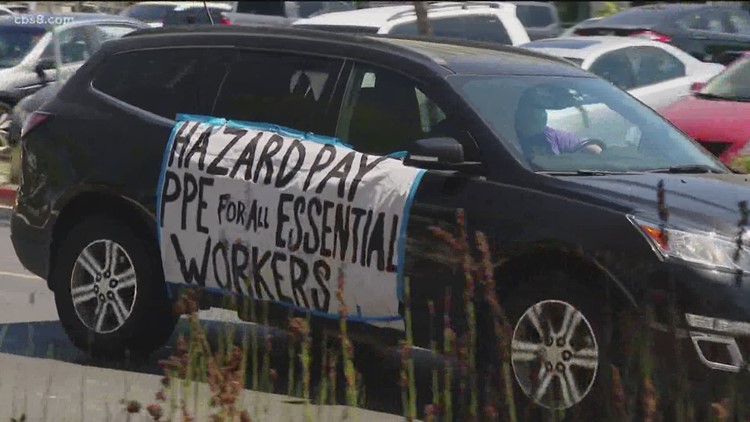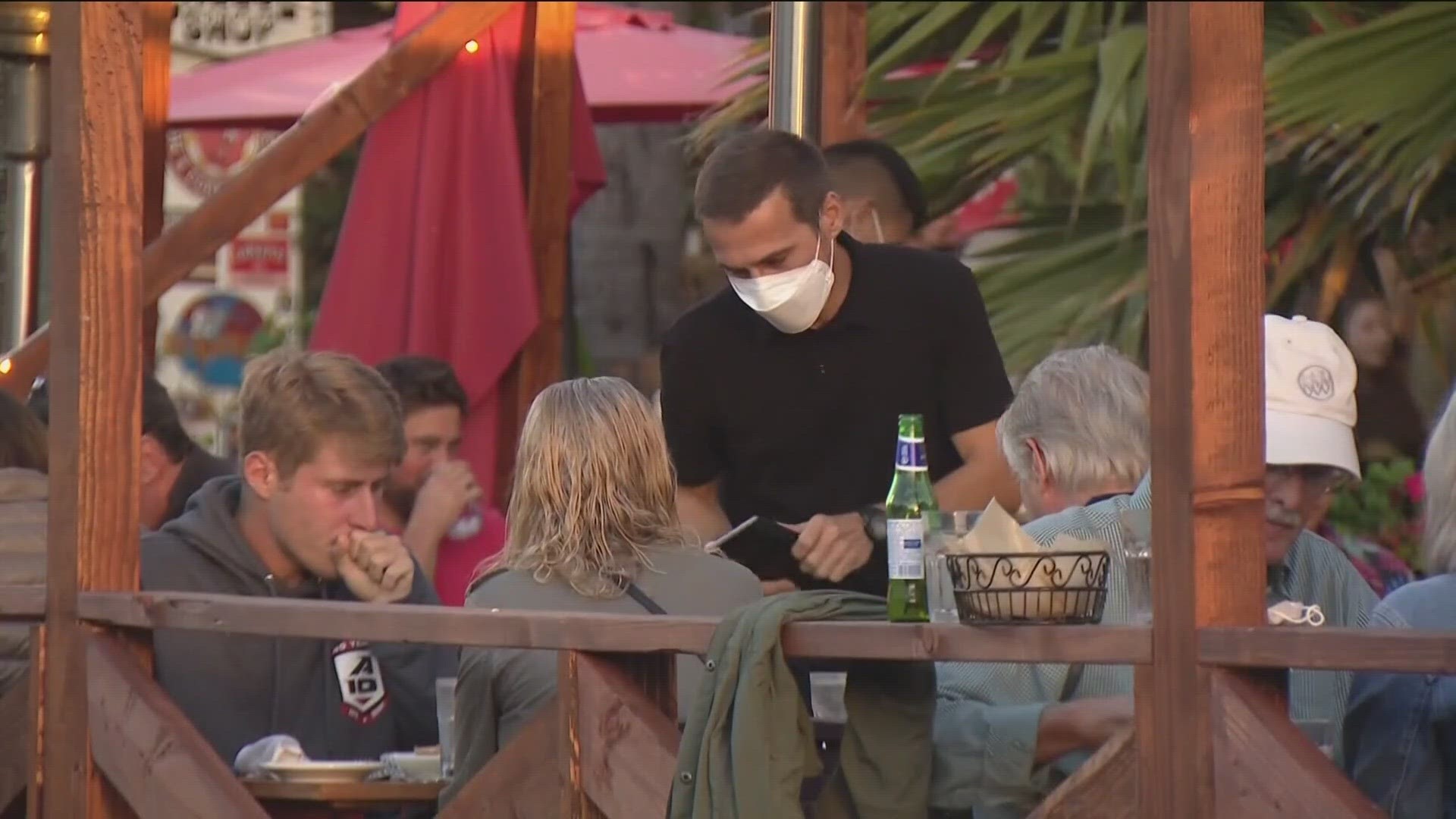SAN DIEGO — The San Diego County Board of Supervisors declined Tuesday to move forward with one action but passed another authored by Supervisor Nathan Fletcher aimed to help the families of essential workers during the COVID-19 pandemic. The voting came a day after a caravan of county employees called for hazard pay and safer working conditions.
The Board of Supervisors was presented policies authored by Supervisor Fletcher to grant hazard pay to front-line San Diego County employees and make $5 million available for childcare vouchers for essential workers.
The board passed on moving forward with hazard pay but unanimously approved the childcare voucher item.
The hazard pay proposal by Fletcher to offer hazard pay to essential county workers died for lack of a second motion.
Cox said that considering the county's long-term expenses in responding to the coronavirus, it was unwise to approve hazard pay.
Desmond said frontline employees are "doing God' work," but the county needs to open up its economy for the 25 percent of residents who aren't getting a paycheck at all.
"In the long run, they're the ones paying your salaries," he added.
Since March 19, about 7,500 San Diego County employees have been deemed essential workers. These jobs include public health nurses, probation officers, deputy sheriffs, home healthcare workers, behavioral healthcare workers, and eligibility services staff.
Fletcher later said he was disappointed by the board's lack of support.
David Garcias, the president of SEIU 221 which represents public sector employees in San Diego and Imperial counties who work for county, city governments and school districts, as well as employees of Head Start, Red Cross, courts and clinics issued the following statement on the hazard pay item stalling:
“Today a majority of County Supervisors turned their backs on front-line workers, like nurses, probation personnel, social workers and so many others putting their lives on the line to serve our communities. Supervisor Gaspar had the gall to question whether front-line workers are in danger of exposure to COVID-19, and Supervisor Desmond called front-line staff ‘angels’ before voting against them. Thank you Supervisor Fletcher for supporting front-line workers with words and action.”
As for funds for childcare, Supervisor Fletcher's policy allocates $5 million of County of San Diego CARES ACT money to support "Emergency Childcare" vouchers for those essential workers and vulnerable populations.
During the meeting an amendment was made by Supervisor Dianne Jacob to make the funds contingent on the City of San Diego also contributing $5 million from its CARES ACT funds, making a grand total of $10 million available.
San Diego County will partner with the YMCA and Child Development Associates to administer the funds. The vouchers are expected to remain available until the funds run out or by December 30, 2020.
Supervisor Fletcher hosted a virtual press conference on Monday to discuss the policy proposals.
"Some professions during this global pandemic have the difficult responsibility of running towards the sound of danger, and our frontline and essential workers are those people," said Supervisor Nathan Fletcher, Co-chair of the County's COVID-19 Subcommittee. "To reward their selflessness the hazard pay and emergency child care voucher policies provide them with more financial support for their courage and sacrifice as they help us battle this public health crisis."
Supervisor Fletcher said he was proposing a three-tier, percentage increase, and select monthly reimbursements for these workers who are on the front line every day.
- Tier 1: A 5% salary increase for County employees who are working directly with COVID-19 positive individuals and PUIs.
- Tier 2: A 3% salary increase for County employees who are engaging the public and/or clients and could be interacting with COVID-19 positive individuals or PUIs.
- Tier 3: A 2% salary increase for County employees who are being required to report to work and are at risk of exposure due to interaction with coworkers.
Coronavirus Aid, Relief, and Economic Security funds (CARES ACT) would have been used for the hazard pay and would have been effective retroactively from March 19 until December 31, 2020, or once the state stay at home orders are lifted.



